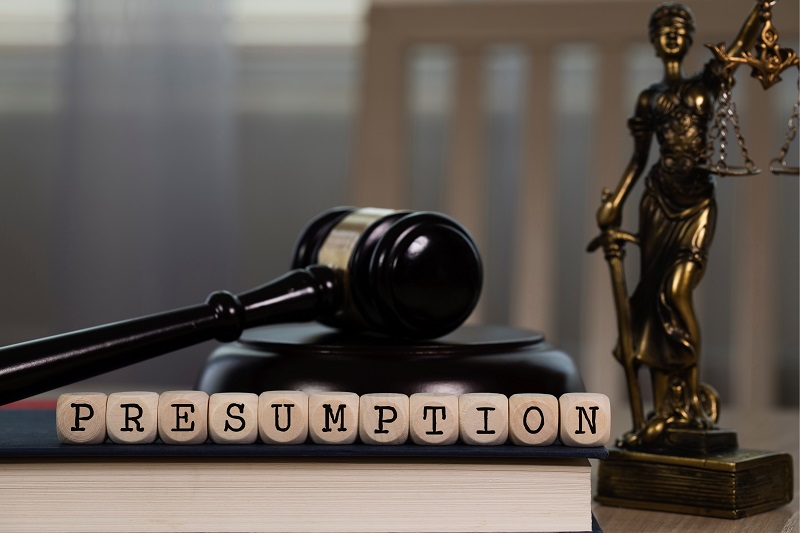Initial Discussion On Dna Profiling: Rebuttable Presumption Or Conclusive Proof

To infer or draw a conclusion is what is often meant by presumption. The Indian Evidence Act, 1872 permits the courts to take presumptions in specific circumstances, albeit such presumptions are typically rebuttable lest they become the conclusive proof. Legally, a presumption is an inference of a certain fact drawn from another demonstrated fact. The moment a court takes a presumption, the burden of proof shifts on the accused. Presumption shortens the trial because if one fact is established, the court can straightaway go to a conclusion.
Because it is not always required that the logic is true and because presumption is the court’s prerogative, unless the law requires it, whenever a presumption is made on the basis of logic, natural justice dictates that the individual be given the opportunity to rebut it. Only those matters that are permitted by the Indian Evidence Act of 1872 can be presumed by the court. The Court “may presume” or “may not presume” in situations where the law does not require presumption; nevertheless, the Court “shall presume” in situations where the law does require presumption. These are also referred to as legal presumptions.
Presumptions of law are the arbitrary inferences which the law expressly directs the Court to draw from particular facts. These presumptions are based on public policy and there may or may not be any logic in these presumptions. In cases of presumptions of law, the law forces the court to take a presumption on an established fact and it is not based on logic. Here, no discretion is given to the Courts & the Courts are bound to presume the fact as proved unless the defence rebuts it.
However, it advances to the level of proof if the person against whom the presumption has been made is unable to disprove it.
Conclusive proofs are however taken as the Irrebuttable presumption of law and on the proof of one fact, regard the other as proved and Courts do not allow evidence to be given for the purpose of disproving it.
DNA PROFILING AND VIEWS OF VARIOUS COURTS:
As DNA tests are now required for a fair trial, DNA profiling becomes crucial in rape cases. The core of criminal law is a fair trial, and denying someone a fair trial amounts to crucifying their human rights.
In a 1993 case, GAUTAM KUNDU vs STATE OF WEST BENGAL, the Hon’ble Supreme Court while taking an extreme view refused to accept the scientific dominance of the DNA test and held that DNA test is not a conclusive proof and it can be taken as a mere balance of probability.
The Supreme Court and several High Courts in India, however, adopted a more liberal stance as time went on. In a 2012 case named “ROHIT SHEKHAR vs. N.D. TIWARI,” the Delhi High Court stated that DNA profiling is a very essential feature and that even in 2012, we are neglecting this crucial scientific aspect and relying on the decades-old legal demands..
Further in another landmark case of 2014, the Hon’ble Supreme Court in the case titled “NANDLAL VASUDEV BADWAIK vs. LATA NANDLAL BADWAIK” held that sometimes we to employ what we call “the test of eminent need”.
The moot question was whether DNA is the conclusive proof and a substantial piece of evidence?
While answering this moot question, the Hon’ble S.C. observed as under:
“Slow science has brought about many truths and in our opinion, where there is a conflict between a conclusive proof envisaged under law and a proof based on scientific advancement accepted by the world community to be correct, the latter must prevail over the former.”
However, it was just a matter of time before another contrasting Supreme Court decision overturned the Nandlal Vasudev case. The Supreme Court reaffirmed the traditional position in the 2019 case of “PATTU RAJAN vs. STATE OF TAMIL NADU,” stating that DNA testing is at best opinion evidence and that opinion evidence cannot be substantive evidence and cannot serve as the basis for any conviction or acquittal unless it is supported by other evidence on file.
Therefore, despite the fact that DNA testing is a marvel of modern medicine, higher courts across the nation are hesitant to uphold its sanctity, and even in this day and age of cutting-edge technology, it hasn’t succeeded in becoming a substantive piece of evidence. DNA test findings are still contestable in court.
BY MOHIT ARORA
ADVOCATE
The author of this article is a lawyer practicing in Punjab & Haryana High Court, Chandigarh.








